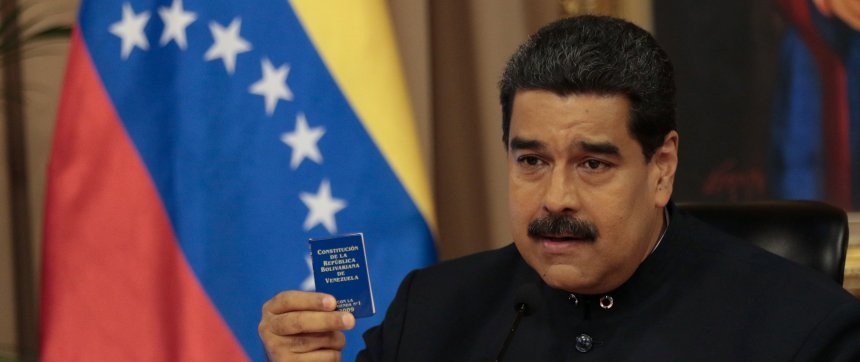Venezuela’s Inflationary Catastrophe
July 25, 2018 | Expert Insights

The IMF has warned that Venezuela is heading for 1,000,000% inflation by the end of the year, as the government continues to pump out bank notes in response to its deepening economic crisis. It is the 23rd highest recorded inflationary spiral in history.
Background
Despite having world's largest proven oil deposits, many Venezuelans have lived in abject poverty. The former President Hugo Chavez was in office from 1999 to 2013. In that period, billions of dollars were spent in generous social programs. After his death, his successor, Nicolas Maduro took office. He has clung to power by weakening institutions and rigging elections. His regime has been accused of committing serious human rights abuses, and engaging in rampant corruption.
Underpinning the current political crisis is an acute and increasingly unstable economic crisis. It is marked by inflation, shortages of consumer goods, defaults on the government’s debt obligations, and deteriorating living conditions with significant humanitarian consequences. The drop in the global oil prices in 2014 have added to the administration’s problems. People are also disillusioned by the high level of urban violence prevalent in the nation.
Venezuela’s economy has contracted by 35% since 2013, a much larger contraction than the one experienced by USA during the Great Depression in the 1930s. The nation’s economy has become increasingly unstable and there is hyperinflation in the region. In August 2017, CNN reported that 3,164 Bolivars was equivalent to $1. This is a problem because private banks let Venezuelans withdraw 30,000 bolivars ($2.88) from an ATM at a time. Late last year the country had only $10billion in reserves.
Analysis
Inflation in Venezuela might hit levels seen in the Weimar Republic in Germany in the 1920s. Robert Rennhack, deputy director of the International Monetary Fund’s Western Hemisphere department expects the Venezuelan economy to contract by 18%, marking the third consecutive year of a double digit decline. In April this year, it had predicted rise in prices by 13,000%. “It is one of the most severe hyperinflation situations that we’ve known about since the beginning of the 20th century,” he said.
Ecoanalitica, a Caracas-based financial firm, has predicted that the inflation rate will increase beyond 1 million, reaching 1.4 million% by December. Prices have consistently risen at more than 50% per month, which is usually considered the threshold for hyper-inflation. The opposition-led National Assembly publishes its own figures. It had marked inflation at 128.4% in June, with prices rising by 3% every day. According to the UNHCR, the inflation is so critical that 5,000 people are fleeing the country every day. At this rate, 1.8m people - more than 5% of Venezuela’s population - will depart this year.
Steve Hanke, an economist at Johns Hopkins University in the US, has studied historical cases of hyper-inflation. According to him, the most extreme cases were in Hungary just after World War II where prices doubled every 15 hours, in Zimbabwe a decade ago and in Serbia in 1989. Generally, hyperinflation is not very long-lasting, except in Greece during World War II and in Nicaragua during the late 1980s when prices rose by more than 50% per month for several years.
The government is having a tough time paying for the paper to print the nearly worthless currency of Venezuela, the bolivar. Instead, it is simply creating reams of electronic money paid into bank accounts. This means that even small transactions are increasingly being done by bank cards and money transfers rather than in cash. Maduro’s attempts at creating a cyber-currency, the petro - backed by oil reserves, have failed. He is planning to cut three zeros off the national currency on August 4, but economists believe the plan might be cancelled as banks are not yet ready to issue the new notes.
A report from Financial Times last year had noted that the IMF has begun preparing a probable bailout plan for Venezuela of giving the country $30 billion annually. However, the government has shown no signs of pursuing a debt restructuring and reform program.
Counterpoint
The Venezuelan government had stopped publishing official inflation data a long time ago. It blames the country’s economic crises on America, which it states is out to destroy their nation. Abandoning the local currency and adopting the US dollar, a measure used in other countries to reduce inflation, is considered an outrage by the Maduro regime.
Assessment
Our assessment is that the hyperinflation has resulted in extremely poor living conditions for the Venezuelan people. We feel that the worsening political and economic crisis might lead to spillover effects in neighbouring countries. We believe that stronger sanctions to force a change in government, previously suggested by several analysts, might be detrimental to the people.








Comments